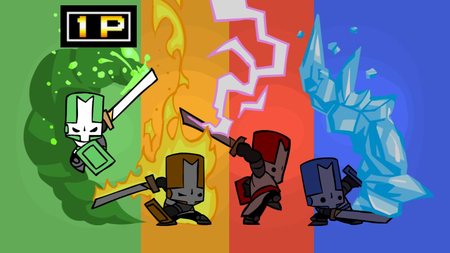
In a world of 3D worlds, dynamic lighting and intense shadows we see far too few old school retro style platformer titles. With the advent of Xbox Live Arcade, WiiWare and the PlayStation Network we’re seeing a few new indy developers getting into the game.
Castle Crashers, developed by The Behemoth, is an upcoming side scroller of cutely neat beat ’em up action on Xbox Live Arcade (XBLA). The game will be 1,200 Microsoft Points (USD $15) and will launch August 27th, very soon. This side scroller allows for 4-player action, local or over the Xbox Live system with your friends and there is another mode for battling each other known as Arena.
This is like an artistically rendered version of Golden Axe with Knights! There are many different knights, each with their own powers of attack, Blue Knights can attack with Ice while the Orange Knight attacks with Fire, the Ninja Knight fires shurikens and a host of other unique Knights do battle with their own methods of madness.
If you checkout The Behemoth‘s Castle Crasher Website you’ll see a host of images and their recent trailer showing off the action. It’s safe to say, this is going to be a fast paced slightly silly slightly retro beat ’em up game paying homage to Golden Axe, Double Dragon and TMNT (original arcade one at least) with the graphic style of Alien Hominid HD, their last title.
Stay tuned, we’ll be announcing a contest to win a copy of Castle Crashers in the very near future!

